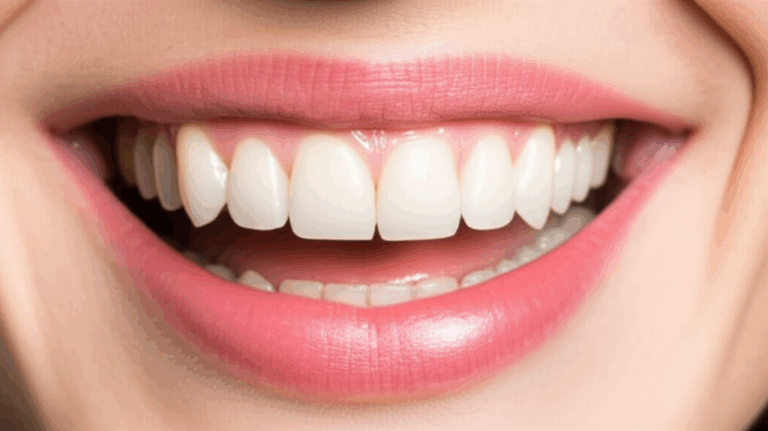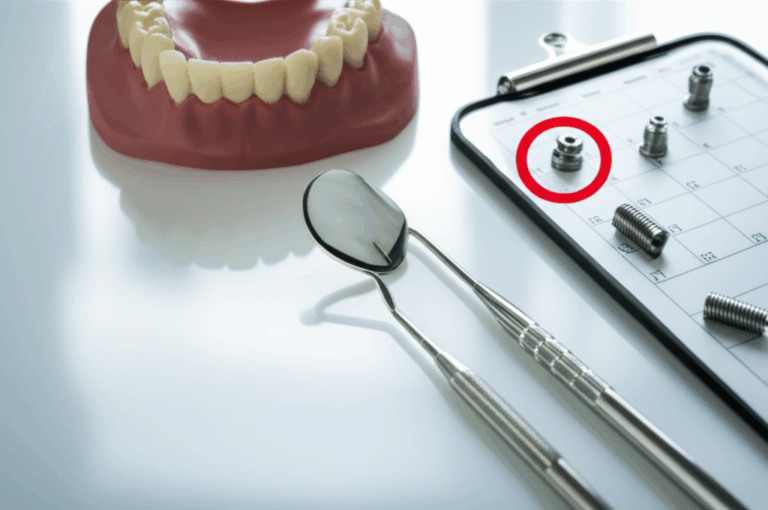
Dental Implants in Hungary: Comprehensive Cost Guide & Savings Potential
Find out how much dental implants cost in Hungary, what you get for your money, and why so many people go to Hungary for cheap, good-quality dental care. This article tells you everything you need to know in simple words, step-by-step.
Table of Contents
1. Introduction: Why Do People Choose Hungary for Dental Implants?
Let’s be honest—dental care is pricey, especially in the UK or USA. Lots of people need dental implants because of missing teeth, but the cost back home is scary. So, more people are asking, “How much are dental implants in Hungary?”
You might be surprised. Hungary isn’t just known for Budapest or its hot baths. It’s a top place for dental tourism, giving great dental care for a much lower price. Every year, thousands fly in for quality care, skilled dentists, and big savings. This guide will show the prices, explain what you get, and why Hungary leads in cheap, good dental implants.
2. How Much Are Dental Implants in Hungary?
Let’s get to the numbers. When you want to know the “cost of dental implants in Hungary,” you want real prices.
Average Prices
- Single Dental Implant (just the screw, no crown/abutment):
€400 – €800 (£340 – £680)
- Complete Single Dental Implant (screw + abutment + crown):
€700 – €1,500 (£600 – £1,300)
- All-on-4 (full set of teeth on 4 implants):
€4,000 – €8,000 per arch (£3,400 – £6,800)
- All-on-6 (for extra strength):
€6,000 – €10,000 per arch (£5,100 – £8,500)
Now, look at the prices in the UK or USA. You’ll see why dental tourism Hungary is so popular.
Here’s a quick comparison table:
| Feature | Hungary (€ / £ / $) | UK (£) | USA ($) |
|---|---|---|---|
| Single Implant (No Crown) | 400–800 / 340–680 / 430–860 | 1,000–2,000 | 1,500–3,000 |
| Complete Single Implant | 700–1,500 / 600–1,300 / 750–1,600 | 2,000–4,000 | 3,000–6,000 |
| All-on-4 (per arch) | 4,000–8,000 / 3,400–6,800 / 4,300–8,600 | 10,000–18,000 | 15,000–25,000 |
| All-on-6 (per arch) | 6,000–10,000 / 5,100–8,500 / 6,400–10,700 | 12,000–25,000 | 18,000–30,000+ |
These numbers speak for themselves!
3. What’s Included in the Cost—and What’s Not?
Before you start planning or counting your savings, know what’s really included in the price.
What’s Usually Included:
- The implant screw (put into your jaw)
- The abutment (joins implant to crown)
- The dental crown (the tooth part you see)
- First check up and plan
- Basic X-rays
What’s Extra? (Watch Out!)
- CT scans or better X-rays
- Tooth extractions if needed
- Bone Grafting or Sinus Lifts (if bone is too thin)
- Temporary Crowns
- Travel and your stay
- Medicine after the surgery
Hungary has good dental packages, but always ask what’s in the price. Don’t let any surprise costs spoil your plans!
If you want more info on other possible dental issues, see this dental problems page.
4. Why Are Dental Implants So Cheap in Hungary?
When prices are low, people sometimes worry if it’s unsafe.
Here’s Why Hungary Can Be Cheaper:
- Lower living costs: Staff pay, rent, and bills cost less in Hungary.
- Help from government: Hungary puts money in healthcare and dental tourism.
- More patients: Busy clinics can charge less for each person.
- Lots of clinics compete: This keeps prices low.
It’s not about cutting corners. It’s about working smart in a country where things cost less. Hungary is also in the European Union, so strict health and safety rules are followed.
5. Are Dental Implants in Hungary Safe and High Quality?
It’s normal to worry. Everyone wants to save, but no one wants bad treatment.
The Simple Truth
- EU Rules: Clinics follow strong European rules.
- Trained Dentists: Many learned in good medical schools.
- Modern Tools: Most clinics use the best technology, like digital scans.
- Quality Brands: Good clinics use famous brands such as Nobel Biocare and Straumann.
- High Success: Studies show 95–98% success rates in Hungary, same as the UK or US.
Before you go, check for:
- Clinic certificates
- Dentist’s training
- Real patient reviews
This way, you can feel safe about your choice—maybe even safer!
6. What Are the Main Factors That Affect the Cost?
There isn’t just one set price. What you pay depends on what you need.
Big Things That Change the Price:
- Brand of Implant:
Big name brands cost more than lesser-known ones.
- Extra Work Needed:
If you need a bone graft, tooth taken out, or sinus lift, it’ll cost more.
- Materials:
Choices are metal-porcelain, zirconia (strong, tooth-colored), or E-max (looks like real teeth).
- Place:
Budapest clinics usually cost a bit more than smaller towns.
- Dentist’s Experience:
Dentists with many years of work or a big name may ask for higher fees.
- Tools Used:
Clinics with digital scans and 3D imaging could cost more, but plan better.
If you’re curious about how modern tech is used, check out this digital dental lab page.
7. Cost Comparison: Hungary versus UK and USA
Is it really cheaper? Let’s have a look!
Typical Savings
- One complete implant (screw + abutment + crown) is €700–€1,500 in Hungary but £2,000–£4,000 in the UK, or $3,000–$6,000 in the US.
- Full mouth implants (All-on-4/6) can save you €10,000–€15,000!
It All Adds Up
Even if you add flights and hotel (about €500–€1,000 for a week), most people find going to Hungary for a week still costs less than staying local.
And these are not backstreet places—Budapest and Sopron have some of the best clinics in Europe. Every year, 70,000–100,000 dental tourists visit Hungary.
8. What’s the Dental Tourism Experience Like?
What really happens if you fly to Hungary for dental work?
The Process
- Talk Before You Go:
Many clinics do free or cheap video checks before you travel.
- First Visit:
You get checked, get scans, and your implants are put in (if you’re ready).
- Healing Time:
It takes 3–6 months for your jaw to heal; go home and live normal.
- Second Visit:
Final abutment and crowns are fitted, and your new smile is ready.
What About Care After?
Many clinics offer checkups, sometimes using partner dentists in your home country. You can also contact your Hungarian dentist online.
9. How Do You Pick the Right Clinic or Dentist?
Choosing right matters most. Here’s a checklist:
What to Look For
- Good Reviews:
Check honest patient stories online—not just clinic websites.
- Works for Years:
Pick clinics that have been around a while, not new ones with no history.
- Fair and Clear Pricing:
Get a full price list—no surprise costs.
- Qualified Dentists:
Look for implant dentists, mouth surgeons, or pros who specialize.
- Modern Clinic:
Clean, modern tools that follow EU rules.
- They Speak English:
Easy talk matters.
Ask as many questions as you want. Good clinics will always give answers.
10. Is Hungary the Right Choice for You?
Let’s break it down. Dental implants at home are crazy expensive. That’s the big worry.
Do You Need Dental Implants?
If you are missing teeth or hate dentures, implants make a real difference. They look real, are easy to clean, and last many years.
Why Not Stay Home?
At home, the cost is just too high. Maybe insurance won’t pay or waiting lists are long. Hungary gives you a real answer—good quality, low cost, fast work, no wait. It could be just what you need.
If you want to know more on how implants work, check this dental implant advice page.
11. FAQ
Q: Do Hungarian clinics use safe, well-known implant brands?
A: Yes! Top clinics use brands like Nobel Biocare, Straumann, Alpha Bio Tec, and more.
Q: Does the treatment hurt?
A: Most clinics use numbing shots or sedation. Most people say it hurts less than they thought.
Q: How long does the whole process last?
A: Usually 2–3 visits over 3–9 months, depending on healing.
Q: Can I get a guarantee?
A: Yes, many clinics give warranties on implants and crowns.
Q: Will language be a problem?
A: Not at all. Nearly all clinics speak English.
12. Summary: The Most Important Things to Remember
- Hungary gives you dental implant prices 50–70% less than the UK or US.
- No need to risk quality or safety. Clinics follow EU rules and use top brands.
- Typical costs: €400–€800 for implant only, €700–€1,500 for all pieces.
- Not included: flights, hotel, better scans, or extra surgery.
- More than 70,000 dental tourists pick Hungary each year—they can’t all be wrong.
- Always get a full quote and check the dentist’s training.
- The whole process takes a few months, and you save a lot.
- Worried about the materials? Dental ceramics labs in Hungary use new tech and safe stuff.
Thinking of a new smile? Hungary could be the right spot—great care, skilled dentists, and big savings in a beautiful country.








